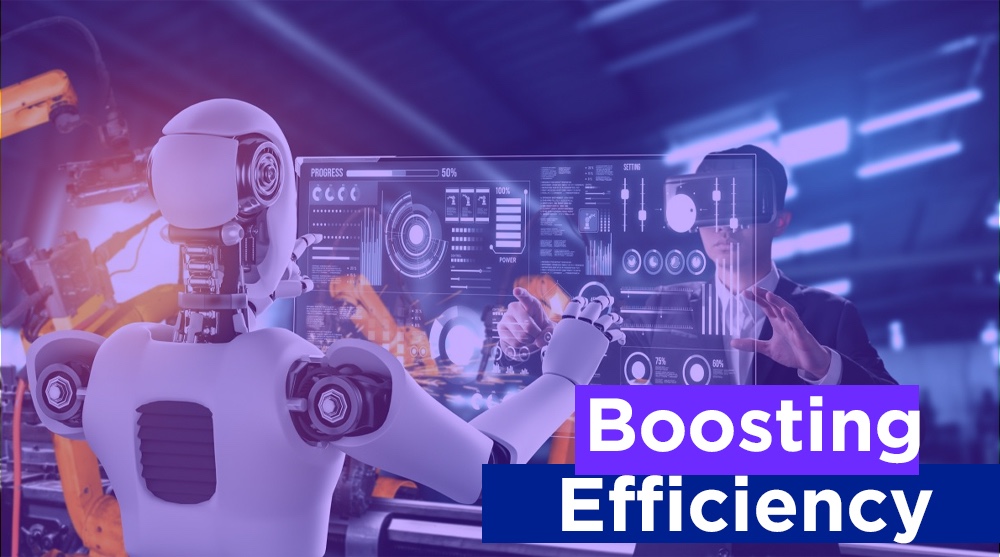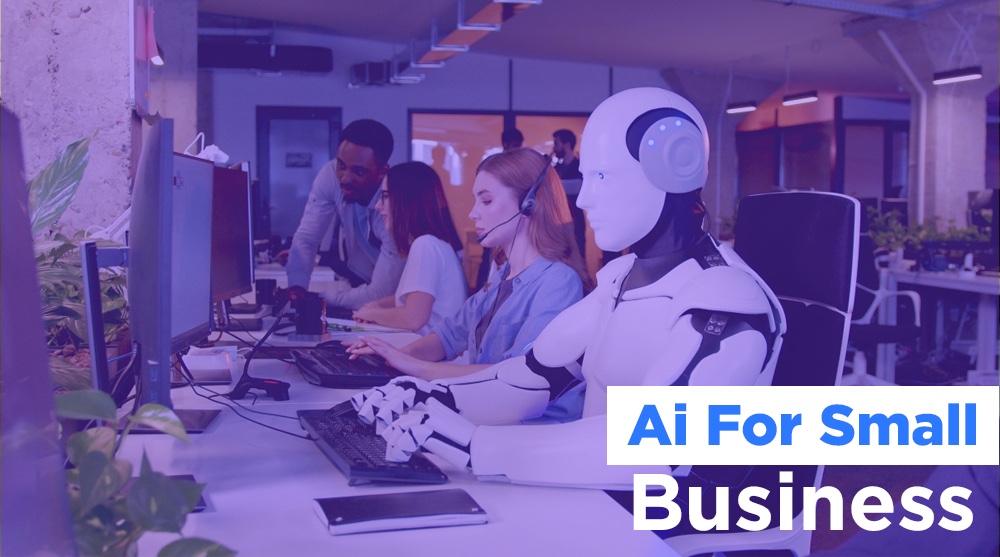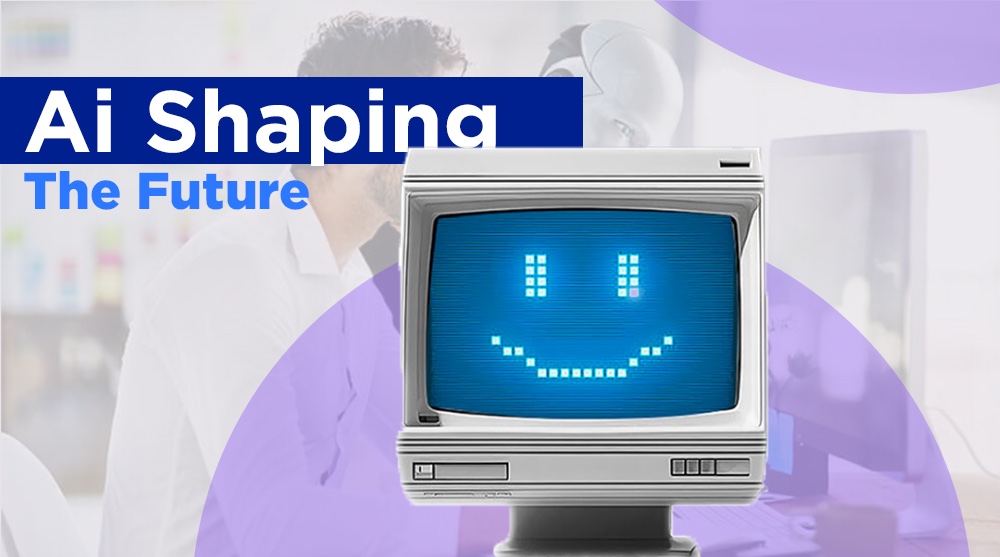The Future of AI in Business: Trends to Watch in 2024
Artificial Intelligence (AI) has become an integral part of business strategy in recent years, and its influence continues to grow at a rapid pace. From automating routine tasks to transforming customer service, AI is set to reshape the way businesses operate globally. As we look toward 2024, AI technologies are becoming more sophisticated, driving innovation and competitive advantage for companies that embrace them.
In this article, we’ll explore the top AI trends businesses need to watch in 2024, highlighting the technologies and applications that are set to revolutionize industries across the board. The future of AI in business promises exciting developments that will increase efficiency, improve decision-making, and create new opportunities for growth.
AI-Powered Automation Expands
Automation has long been one of the most significant AI applications in business, and its impact is only expected to deepen in 2024. The ability of AI to handle repetitive tasks, such as data entry, invoice processing, and scheduling, is well-established. However, as AI technologies advance, automation is expanding into more complex areas, including cognitive tasks that require problem-solving and decision-making.
AI tools, such as Robotic Process Automation (RPA) and AI-driven chatbots, are being integrated into business operations at all levels, from customer service to supply chain management. In 2024, AI will increasingly enable organizations to automate tasks that involve higher-level thinking, like generating reports, analyzing market trends, and even writing basic content.
This shift toward cognitive automation will free up employees to focus on more strategic, creative, and value-driven activities, resulting in improved productivity and operational efficiency.
Predictive Analytics and Data-Driven Decisions
In the era of Big Data, businesses have access to more information than ever before. However, the sheer volume of data can be overwhelming, making it challenging for companies to extract actionable insights. AI-powered predictive analytics is stepping in to solve this problem, enabling businesses to use data more effectively to make better, faster decisions.
In 2024, AI will play a critical role in helping businesses predict trends, identify risks, and forecast outcomes. Machine learning algorithms can process vast amounts of historical and real-time data, uncovering patterns that may not be immediately apparent to human analysts. These insights are crucial for making informed decisions in areas such as marketing, finance, operations, and human resources.
For example, in the retail industry, AI can analyze customer behavior to predict buying trends, allowing companies to optimize inventory, personalize marketing efforts, and improve overall customer satisfaction. In healthcare, predictive analytics can help identify potential health risks and improve patient outcomes.
AI-Driven Personalization in Customer Experience
Delivering a personalized customer experience has become a key differentiator for businesses in today’s highly competitive market. AI is revolutionizing personalization by enabling companies to tailor their products, services, and interactions based on individual preferences and behaviors.
In 2024, AI will continue to enhance customer experiences across industries, from e-commerce and entertainment to banking and healthcare. AI-powered recommendation engines, for example, are becoming more sophisticated, offering highly personalized suggestions for customers based on their browsing history, purchase patterns, and social media activity.
Moreover, Natural Language Processing (NLP) technologies are improving the accuracy and fluidity of AI-driven chatbots, making it easier for businesses to provide real-time, conversational support tailored to each customer’s needs. Whether it’s through personalized content recommendations, dynamic pricing models, or one-on-one customer service interactions, AI will help businesses build deeper, more meaningful relationships with their customers in 2024.
Ethical AI and Transparency
As AI continues to evolve, concerns surrounding ethics, transparency, and accountability in AI systems are becoming more pressing. In 2024, businesses will need to place a greater emphasis on developing ethical AI frameworks to ensure fairness, avoid bias, and protect customer data privacy.
AI systems are only as good as the data they are trained on, which means poorly curated or biased datasets can lead to unintended consequences, such as discriminatory algorithms or inaccurate predictions. To address these issues, companies are increasingly investing in explainable AI (XAI) solutions that allow users to understand how AI systems arrive at their decisions.
In addition to regulatory compliance, companies that prioritize ethical AI practices will foster trust with their customers, strengthening their reputation and minimizing legal risks. The future of AI in business will involve not only leveraging its power for innovation but also ensuring its responsible use.
AI in Human Resources and Talent Management
AI’s influence is also being felt in the field of human resources (HR), particularly when it comes to talent acquisition and management. AI tools are transforming how companies recruit, onboard, and retain employees, offering greater efficiency and accuracy in these processes.
In 2024, AI-driven HR solutions will continue to streamline hiring by automating candidate screening, scheduling interviews, and even assessing cultural fit. By analyzing a candidate’s resume, online presence, and past experiences, AI algorithms can match applicants to job openings more effectively than traditional methods. This not only speeds up the hiring process but also reduces bias, allowing for more diverse and qualified candidates to be considered.
Beyond recruitment, AI can also be used to predict employee performance, optimize workforce planning, and enhance employee engagement. For instance, AI-powered analytics can help companies identify potential leaders and provide personalized career development plans, ultimately improving employee satisfaction and retention.
AI-Driven Innovation in Product Development
AI is proving to be a powerful tool in accelerating innovation across various industries. From pharmaceuticals to manufacturing, businesses are using AI to develop new products, optimize designs, and even test prototypes in virtual environments. This allows companies to bring products to market faster and more efficiently.
In the automotive industry, for example, AI is playing a crucial role in the development of autonomous vehicles, enabling cars to process and analyze vast amounts of data from sensors in real-time. In pharmaceutical research, AI is speeding up the discovery of new drugs by analyzing complex biological data and simulating molecular interactions.
In 2024, AI will further enhance innovation by enabling more agile and flexible product development cycles. Companies will be able to quickly adapt to changing market conditions, customer preferences, and technological advancements, giving them a competitive edge.
AI and Sustainability
As businesses around the world focus on sustainability, AI is emerging as a critical tool for reducing environmental impact and promoting green practices. AI systems can optimize energy consumption, reduce waste, and improve resource efficiency across industries such as manufacturing, logistics, and agriculture.
For instance, AI-powered energy management systems can analyze data from sensors and smart grids to optimize energy usage, ensuring that businesses only consume what is necessary. In agriculture, AI-driven predictive analytics can help farmers monitor soil conditions, weather patterns, and crop health, reducing the need for excessive water or pesticide use.
In 2024, we can expect more companies to leverage AI technologies to meet their sustainability goals, from reducing carbon emissions to improving supply chain transparency.
Conclusion
As we move further into 2024, the future of AI in business continues to hold vast potential. AI technologies are revolutionizing industries, driving efficiency, and unlocking new opportunities for innovation. From automating complex tasks to enhancing customer personalization and improving sustainability practices, AI is set to be a game-changer for businesses that embrace it.
However, with these advancements come challenges, particularly around ethics and transparency. As businesses harness the power of AI, they must ensure responsible use, prioritizing fairness, accountability, and data privacy.
The future of AI in business is bright, and those who stay ahead of the trends will be well-positioned to thrive in this AI-driven era.
FAQs
How is AI transforming business operations?
AI is automating repetitive tasks, improving decision-making through data analytics, and enhancing customer experiences with personalized interactions.
What are the main trends in AI for business in 2024?
Key trends include AI-powered automation, predictive analytics, AI-driven personalization, ethical AI, innovation in product development, and sustainability.
How does AI help in decision-making?
AI can analyze vast amounts of data quickly, uncovering patterns and insights that help businesses make informed decisions and forecast outcomes more accurately.
What is the role of AI in customer experience?
AI is enhancing customer experiences by providing personalized recommendations, improving chatbot interactions, and offering real-time, data-driven solutions to customer needs.
Is AI in business sustainable?
Yes, AI can be used to promote sustainability by optimizing energy usage, reducing waste, and improving supply chain transparency, helping businesses meet their environmental goals.
How can businesses implement ethical AI?
Businesses can implement ethical AI by using explainable AI (XAI), ensuring transparency in decision-making, avoiding biased data, and adhering to data privacy regulations.
Suggested Inbound Links:
- “Why AI is Key to Business Innovation in 2024”
- “The Role of Ethics in AI: What Businesses Need to Know”
Suggested Outbound Links:
- AI and Automation Trends for Business (McKinsey)
- Sustainable AI Solutions for Green Business Practices (World Economic Forum)




